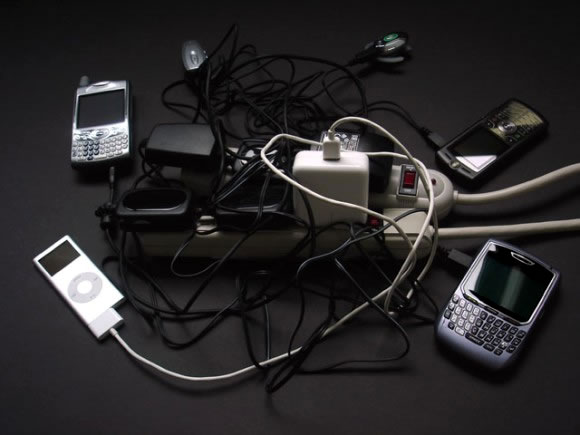South Korean electrical engineers are developing a technology that could recharge your phone battery with the sound of your voice, according to the Telegraph. Dr. Sang-Woo Kim said that various approaches for gathering energy from the environment have been explored, but sound has been overlooked as a source. As such, Kim and his associates at Sungkyunkwan University's Institute of Nanotechnology in Seoul are determined to convert energy from speech, music and other background noises into electrical power.
Beside the concept of charging your handset while chatting, Kim noted that there would be many practical applications for such a technology. For instance, sound-insulating walls near roads could generate electricity from the sound of passing vehicles. For homes or businesses near a busy highway, this would also present the additional benefit of reducing unwanted noise from the traffic. Thinking about other mobile platforms, imagine being able to extend your laptop's battery life by listening to your favorite song.

The technology works by placing a sound-absorbing pad on strands of zinc oxide that are sandwiched between two electrodes. Sound transferred through the pad causes the zinc oxide wires to compress and release, creating an electrical current. While the technology isn't too refined yet, Kim said an existing prototype can generate about 50 millivolts of electricity from 100 decibels of sound. It remains to be seen whether the technology can be polished enough to charge consumer electronics, but Kim is hopeful.
He believes that using a different material for the wires could produce more energy with less noise. "Our current output performance can be applied to various electronic devices with low-power consumption such as self-powered sensors and body-implantable tiny devices. We believe that we can realize more efficient sound-driven nanogenerators," Dr. Kim said. The Telegraph noted similar energy-scavenging technologies such as a heartbeat-powered MP3 players and a Nokia device that harvests energy from movement.